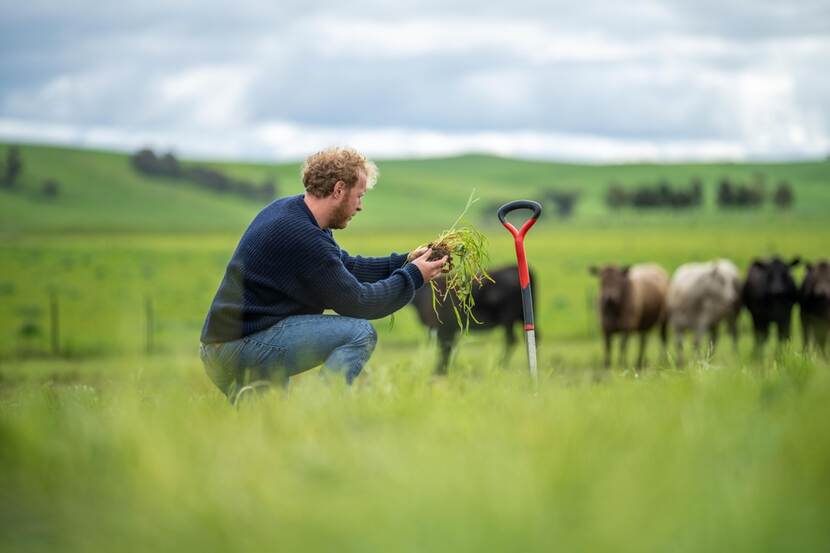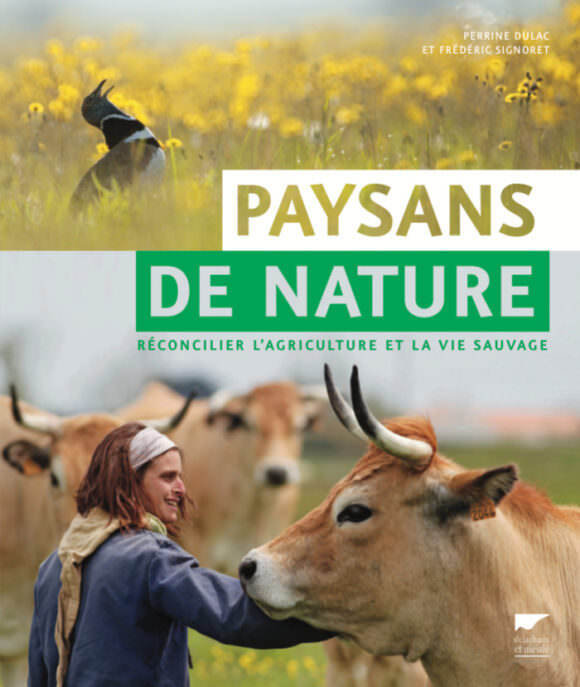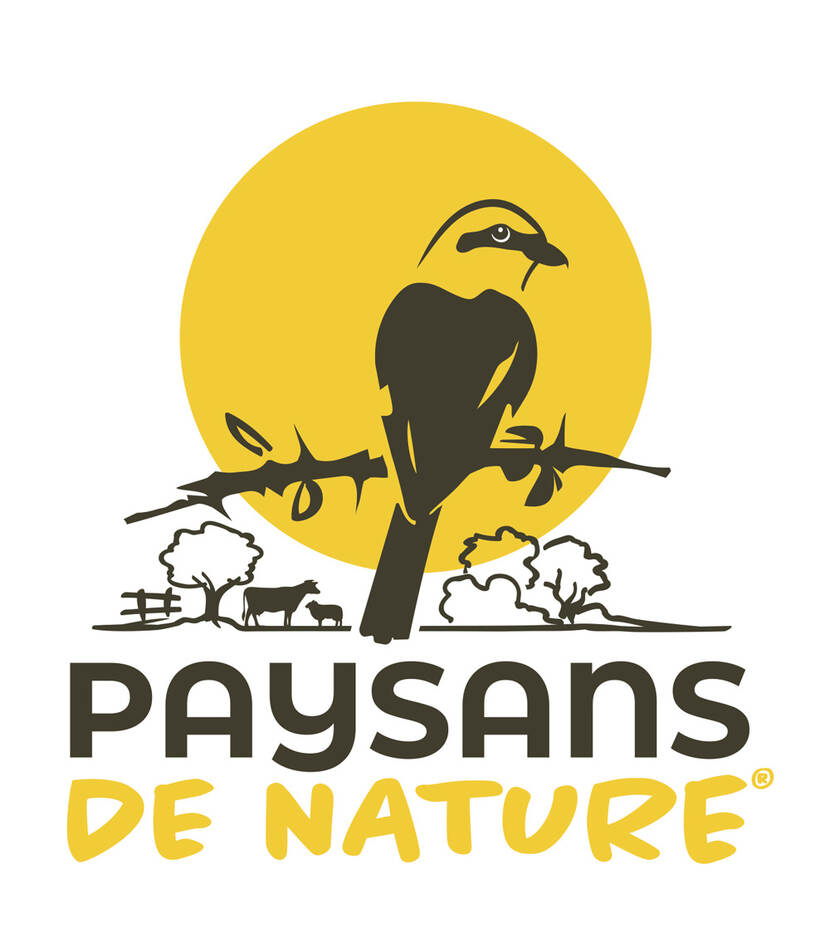France's transition to agroecology
France is leading the way in nature-inclusive agriculture with its agroecology vision and initiatives to involve farmers in improving biodiversity. The Paysans de Nature Foundation is a notable example of this movement, promoting the restoration of biodiversity as the main goal of an agroecological system.

In France, the transition to agroecology began about ten years ago. The country is working towards a good balance between agriculture and nature, livestock farming and arable farming, and minimizing the use of chemicals. The principles of agroecology in France are quite similar to those of kringlooplandbouw in the Netherlands. The French government has launched various initiatives to involve farmers in improving biodiversity. To preserve and enhance biodiversity in agricultural environments, it wants to link economically efficient and environmentally friendly agriculture.
In addition, it has initiated a large-scale plan for agroecological infrastructures such as hedges, trees, and bushes. This plan aims to promote the diversity of flora and fauna to protect crops against parasites and pests, and to improve pollination to increase plant production. The government has also adjusted the requirements for crop rotation and has made considerable efforts to reintroduce protein-rich crops, which contribute to a reduction in the use of artificial fertilizers.
Monitoring biodiversity
In 2009, the French Ministry of Agriculture launched the Observatoire Agricole de la Biodiversité (Agricultural Observatory of Biodiversity). The observatory aims to monitor the state of biodiversity in agricultural areas and raise farmers' awareness of the importance of biodiversity and how to improve it. It is a participatory scientific program that involves 1,775 farms and nearly 3,500 plots. Many different organizations, such as agricultural chambers, agricultural schools, and local associations, manage regional networks of this observatory. Participating farmers collect data on bees, butterflies, worms, invertebrates, and bats and submit their observations to the National Museum of Natural History, which works with the Chambers of Agriculture and the Ministry of Agriculture.

Paysans de Nature
Paysans de Nature (PdN) is a foundation for nature-inclusive agriculture that considers the restoration of biodiversity as the main goal of an agroecological system. The foundation, formed by a network of farmers, promotes agreements with local stakeholders that help spread the PdN vision and its brand. The network currently manages more than 5,000 hectares through its members. By signing the 'charter' (declaration of principles), farmers commit themselves to manage their farm as a 'natural agricultural reserve'. Neighboring stakeholders around each farm are involved in an audit to validate the PdN status of the farm. This audit is based on biodiversity issues identified by managers of local nature reserves and aims to adapt farm management to the natural context.1
PdN originated in the Pays de la Loire region at the initiative of farmers and an association for the protection of nature, LPO Vendée. The foundation wants to create more areas intended for the conservation of wild species, facilitate the settlement of farmers who want to play an active role in nature conservation, and collaborate with the local population. The foundation says it wants to go beyond organic labels and certifications, even though it considers them an important starting point.
‘The Paysans de Nature project supports farmers by recruiting new farmers, building and mobilizing networks, finding and financing agricultural land and inspiring others’
Local network of farmers
The PdN project is implemented locally by the network's farmers and local environmental organizations. It supports farmers who promote nature conservation with several concrete tools:
1. Recruiting (attracting) new farmers
The project tries to recruit young people who do not necessarily have an agricultural background. It welcomes all kinds of students with an interest in nature for a visit but also for internships or the so-called "wwoofing"2 on nature farms. The trainees divide their time between agricultural activities (herd management, cheese making, picking, etcetera), and nature conservation activities together with the farmer and the local nature association.
It also searches for candidates to set up or take over farms: information meetings are organized in several French districts by various organizations (ADEAR, Terre de Liens,3 groups of organic farmers, etcetera), aimed at informing future farmers about the steps needed for business establishment and about the agricultural profession. The foundation uses these opportunities to draw attention to nature-inclusive agriculture.
2. Building and mobilizing networks
The project is at the crossroads of agricultural, social and nature protection issues. Various stakeholders are part of their network, depending on the region:
- Agricultural structures and associations: they often know which companies are for sale. They identify candidates for acquisition and help in the search for financing.
- Local authorities and structures such as regional natural parks and nature reserves: an important resource for finding agricultural land or financial resources.
- Already established farmers: a valuable resource in terms of knowledge of their environment, of successful or unsuccessful experiences, advice on economic strategies, and sometimes also financial help.
- Consumers can also be involved, for example to identify available agricultural land or market studies (if a sheep farmer moves into your neighborhood tomorrow, would you be interested in the yoghurt produced?) and solidarity campaigns.
3. Finding and financing agricultural land
The core problem of starting as a nature-inclusive farmer is the availability of agricultural land. Access to information and land is difficult not being from the region and/or without agricultural background. The price of land (developed and undeveloped) can also be challenging for starting farmers. The above-mentioned stakeholders can support in finding and financing agricultural land and to give young farmers a chance to start a nature-inclusive business.
4. Inspire others
The success stories of the PdN network are highlighted in various ways. The exhibition Perspectives on the farm consists of a collection of panels with pictures that were taken on each participating nature-inclusive farm. The exhibition can be used during various events organized by farmers, nature conservation associations, managers of nature reserves or by other local partners. The entire photo collection can be seen here: Exposition Regards croisés sur la ferme.
Visits to the farms of the network are organized as part of nature education activities (for students and the general public) by environmental organizations and managers of natural areas. This provides farmers with an opportunity to showcase their profession, many facets of which are unknown to the public, and promote their dedication to nature to different target groups, who can become their customers and consumers of their products.
Through participatory visits, the foundation aims to ensure that all sections of society (nature lovers, farmers, other residents) learn from each other on agricultural issues, biodiversity and healthy nutrition. In this context, it has developed the Permanent Dialogue for Nature.
A book about the Paysans de Nature was published and the farms of the network are presented with stands and lectures at various festivals and other events, and their practice of nature-inclusive agriculture enjoys attention in various regional and trade press.
Hayo van der Werf, a Dutch senior researcher at the INRAE (Institut National de Recherche pour l’Agriculture, l’alimentation et l’Environnement) in Rennes (Bretagne) is involved in scientific research on nature-inclusive agriculture, including the example of Paysans de Nature (21. Farming with nature: lessons from rewilding agriculture and Paysans de nature | Transforming food systems: ethics, innovation and responsibility). He also recently published in a Dutch newspaper on this subject (Minder stikstof uitstoten en een groot stuk grond? Ga wild boeren).

Agrifood business and regenerative agriculture
Another movement is so-called regenerative agriculture, which is receiving a lot of attention in France. The attention of the agrifood business for regenerative agriculture is growing. The large agri-food groups want to make their agricultural chain low-carbon upstream. And companies like Nestlé, Danone, McCain, Mondelez and many others have therefore developed forms of regenerative agriculture for their French producers. Their goal is to initiate a transition with the farmers who supply them, to ensure long-term yields and reduce their ecological footprint.
The French trade press wrote extensively about the strategies implemented, more or less ambitious, the obstacles to overcome and the limits of these practices. But that is another story in itself, and the concept of regenerative agriculture has not yet been fully developed.
It appears that France is working in all kinds of ways to increase biodiversity and nature in agriculture. Paysans de Nature seems to be the purest way of nature-inclusive agriculture. However, the playing field is in full swing and there are developments in large parts of French agriculture.
Contact
Would you like to know more about the current developments in the domain of agriculture and nature in France or contact the agricultural team at the Netherlands Embassy in Paris?
You can visit the country page of France at the website agroberichtenbuitenland.nl of the Netherlands ministry of Agriculture, Nature and Food Quality. You can also send an email to PAR-lnv@minbuza.nl
1Source: Farming with nature: lessons from rewilding agriculture and Paysans de nature A.Mondière et al.
2Wwoof = World-Wide Opportunities on Organic Farms
3Terre de liens is a French organization that aims to help future farmers with financial support to acquire land. It was founded by Sjoerd Wartena, a Neerlandicus who settled in the Drôme in southern France about 40 years ago to become a goat farmer.
This article is part of the latest edition of e-magazine Agrospecial (June 2023) about nature-inclusive farming. The teams of our Netherlands Agricultural Network showcase nature-inclusive practices and initiatives in 36 countries worldwide. They delve into the development, benefits and challenges of this innovative farming approach. Each team has a different story to tell. Click here to read more about insights into the potential of nature-inclusive farming practices worldwide!